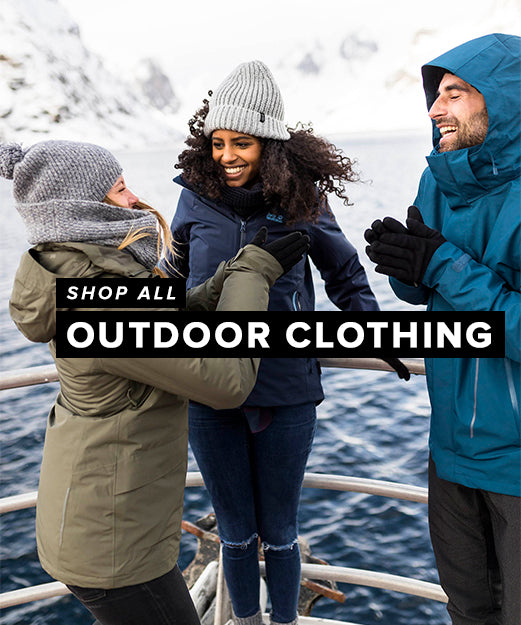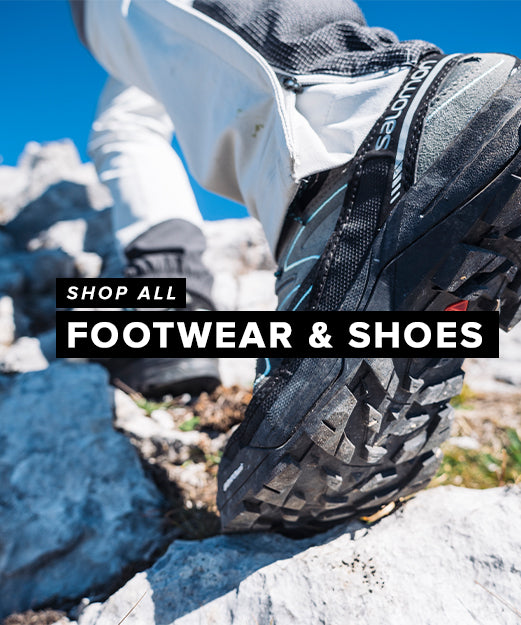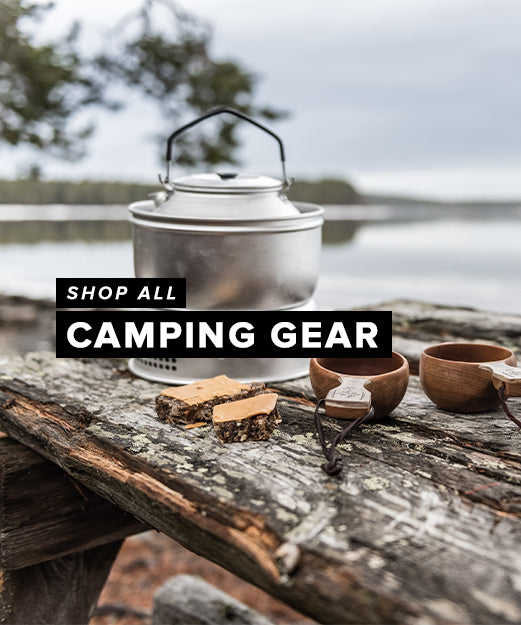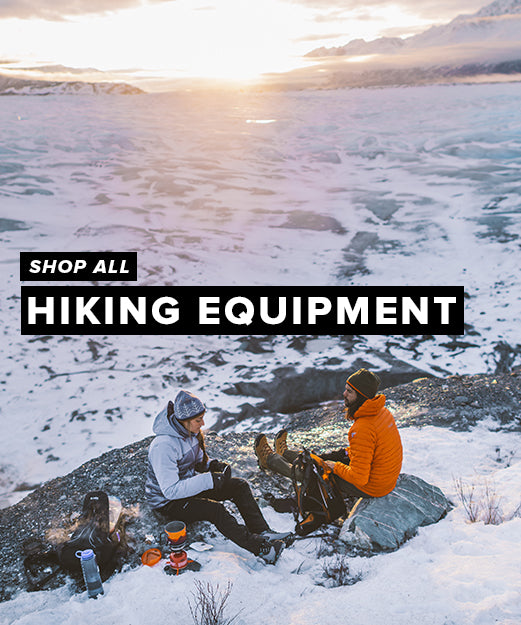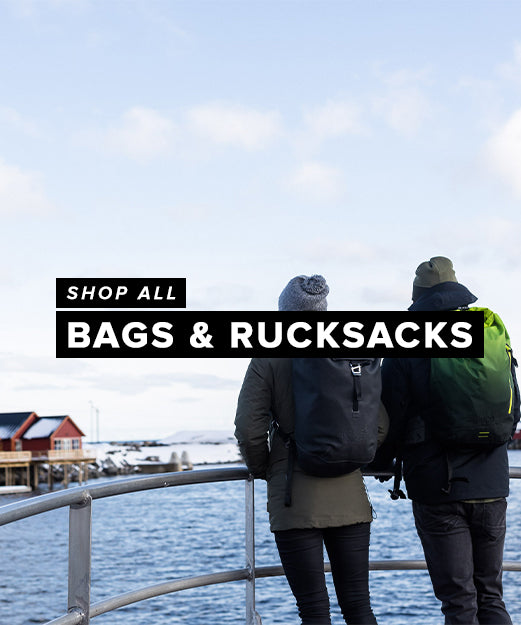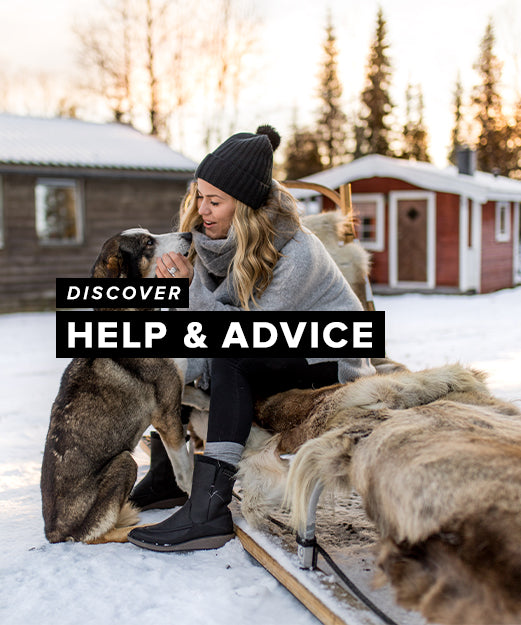There are five of us on a faintly-lit beach, each pumping our arms up and down with a slowly inflating paddleboard at our feet. Port du Marin, Martinique is half fishing harbour and half sprawling marina, and we’ve found the only sand in town. Our excitement is tinged with nerves and a quiet anxiety that tells us - quite rightly - that we’re about to find out what the Caribbean is really like. We finish filling our craft with air, then slide the pumps into the waterproof bags strapped to the boards. It’s time to begin.
A few weeks earlier I’d been figuring out my next move. In 2013 I’d been introduced to two guys, Neil and Neal, who had quit their city jobs to set up a company selling inflatable paddle boards. Thanks to a highly eventful three months in 2011 involving the length of the Mississippi I’d developed a reputation as ‘someone who paddle boards’ and Neil and Neal wondered if there was some way we could work together.
Fast forward a year, and I was ready to spend some more time on water. I also liked the way of creating a project that would enable a big community of people to act towards the same, worthwhile goal. It took about four days to formulate the heart of Project Origin, a concept designed to take the power of adventure and use it to plant one million trees. A global network of speaking events and a commitment to helping 200 people reach the start line of their own adventures was a big part of the fundraising effort, but I felt a series of short but tough journeys by paddleboard would be a really cool way to promote the Project.
So Origin25 was born. The idea was to complete 25 journeys by Origin paddleboard, each one covering at least 100 miles in distance but taking no more than two weeks to complete. These would be journeys that anybody could fit into an average working schedule should they be aching for a challenge, and the fact that the inflatable boards could pack down into a checkable bag to a weigh less than 11kg including board, pump, paddle and bag - this was genius!

Each year I lead a couple of missions on a yacht called Sea Dragon, with Skipper and Oceans Advocate Emily Penn. The scheme is called Exploring Mindset and offers ten people a chance to escape the pressures of land and start to use the thinking time afforded by a spell at sea to formulate their future path. Our next voyage was due to start in mid December 2014 from a Caribbean island named Martinique, and thus an idea began to form. Where is Martinique, and how far is it around the island?
The answer, Google Maps told me, was 135 miles, a distance that could be covered be paddleboard in roughly twelve days, I figured.
While I think I’m at my happiest when travelling solo, I liked the idea of sharing this first leg of Origin25, so I started to put the feelers out. I’d met Rob and Robyn Green in Chamberlain, South Dakota in August 2012, the day before I started a 58 day, 1001 mile swim down the Missouri. We’d been talking about adventuring together for some time and this seemed a good fit. Ben Arthur was a young lad from the UK who had started to sharpen his adventure claws in 2014, and Spike Reid was an experienced expedition leader who was handy with a camera. Calls were made, gear was ordered, flights were booked, the team was finalised one week before we left. All it took was everyone to say yes, and they did.
In the simplest terms, circumnavigating an island is simple. Predominant north easterly winds helped us choose a clockwise direction, which meant we just needed to keep the island to our right. We weren’t going to have support, we’d carry everything we needed in dry bags and make camp each night by slinging our hammocks between available trees. This was a first visit to Martinique for each of us and our French was ropey at best, so we spent some time on Google and Maps and realised that plans are best made in the moment, when you can see the land in 3D.
While Ben and Spike had paddled much of the Thames in 2014, Robyn had 20 minutes of experience on a paddleboard and Rob had never stood on one before our practice session the night before we started. He fell, a lot, but that’s ok, we’re all rubbish when we start something.

The next morning, we were off. The phasing in of a journey is a magical, confidence-building period. Every trip is different, and slowly as the days go by you grow in familiarity with the equipment and the land, where items go and in which order, how to make camp and work together as a fresh team. It takes about three days for the clockwork to click in, by which time you look upon everything around you with a sense of comfort that once seemed such a foreign concept.
So, we paddled. Our first camp was on a 30 degree bank beneath trees that we were later told were highly poisonous during heavy rains. The sap can burn the skin at best, and cause death at worst. We avoided the trees after that. Northerly winds began to lick around the headlands as we inched up the west coast and we’d resupply in small villages, feasting on bags full of pain au chocolate and cooking up pasta and sauce each evening. We met two French guys who speared a barracuda for dinner on night four and, on those few days when we stopped with light to spare and energy to burn, we’d unload and head out onto the water for playtime, especially the ever-popular ‘bumper boards.’
Sundown was close to 6pm each day and we started to scout for camp around 3pm. Martinique boasts more sheer cliff faces than one would hope so taking our chances on beaches of black, volcanic sand became a skill to hone. On Day five we rounded the northernmost part of the island and passed from Caribbean to Atlantic waters. The change was immediate. From 9am onwards the winds blew hard and wild, adding topography and attitude to ocean swells that rose and fell en route to their first land for a few thousand miles. Even when just twenty metres apart the swells meant that we regularly lost sight of each other, and after paddling non-stop for nine hours (stopping paddling meant instantly losing ground) at little more than 1mph it was time to find refuge.
But there was a problem. Beyond belief, none of the villages and towns on the northeast shore boasted a harbour wall so slipping into a safe, calm haven was off the cards. Instead, we were forced to contemplate only one option, crashing into land over the top of ferocious breakers: our own personal washing machine.
Carrying all of our gear, food and water heightened the risk of a rough landing, with turbulent waters providing a very efficient board-stripping technique. From half a kilometre offshore the crashing waves spat up a wall of spray over 10 metres tall, leaving us in doubt that we were about to feel nature’s wrath. We scouted out the most inviting landing - of which there were none - then Spike and I went in first. The waves built fast into a wall and crashed immediately, leaving no surfing time, and we were flung like rag dolls from our boards. It took five minutes to gather up floating bags, boards and water bottles, and then I paddled out after a short breather to retrieve the others. Rob joined me this time and the result was much the same, and then I paddled out one final time to lead Ben and Robyn in. We waited for the height of the swell to pass beneath us and then yelled, ‘paddle paddle paddle, go go go!’
Inevitably, we were all collected by a series of waves and dashed shorewards. Scattered, bruised and exhausted, we finally all stood ashore with hands on knees, staring out at the ocean. A twenty metre strip of boulders and deep, thriving undergrowth separated the Atlantic from a 50 metre cliff face, we were trapped, this was Robinson Crusoe territory. We cleared a half moon-shape of dead wood, foliage, broken palm fronds and other potential pit viper habitat, and set up camp beneath high, forbidding palms.

We’d lost several litres of water during the crash to shore and Spike set about a pile of coconuts, occasionally handing us a swig of milk or slice of raw white nut paste with a satisfied nod. We needed all the energy we could get, but the next morning our first attempts at escaping land were put paid to by the breakers, which spat us back mercilessly. We opted for another night on the beach and rigged up our hammocks just in time to offer shelter from a furious, un-forecasted storm.
Knowing that our supplies would only last another 24 hours we slept with a promise, ‘Guys, tomorrow we’re going to get off this beach, whatever happens.’
We rose at 4:30am and devised a plan. We found a narrow stretch of sand on the beach which offered a shallow, submerged spit. Rob and Spike supported Robyn through the first breakers while I stood high on the shore counting the sets and ready to shout when a gap between the waves arrived. Eventually, with a raucous ‘GO GO GO!’ Robyn set off, climbed the vertical face of a huge, black wave and popped over the top just before it broke. She was over!
Next was Ben, who was in for more of a fight. He was turned three times before making a break for it and then, as he paddled desperately towards open water beyond the reef, a monster gathered ahead of him and grew inexplicably. Myself, Spike and Rob stared agape as Ben was sucked up from the bottom of the wave and spat out of the top. I saw his little body curl and tighten in mid air.
I was expecting the worst and after that wouldn’t have minded if Ben had put his hands up in defeat. Instead, once he’d been barrelled back into shore, he looked me in the eyes and said, ‘I’m ready to go out again.’ It was my favourite moment of the trip, and his courage paid off - he made it out.
Somehow the rest of us managed to scale the waves and paddle out without being turned. Looking back at the beach we’d spent 36 hours on; seeing the royal Mount Pellee rising up from the land above the cliff that had guarded our camp, the waves crashing down in white turmoil at the feet of a thousand palm trees, my four teammates and friends with paddles raised in the joy of freedom; this was worth every moment.

For the next five days we steadily made headway, creeping around peninsulas, dodging reef sharks and dealing with the worst of the ocean swells, which climbed above 20ft at times leaving us dwarfed and exposed. After 145 miles, lips cracked and blistered from the sun, we found ourselves beaching for the final time at the very spot we had left, 12 days earlier.
There were moments on this short journey that were as testing, if not more so, than on some much longer adventures I’ve had the pleasure (and sometimes the opposite) of undertaking. There’s something unavoidable and innate that leads humans to explore and with just a little imagination, finding the middle ground between the pressures of responsibility at home and that urge for a big, challenging adventure can become reality. And once you have the idea, all that’s left is to go for it.
 Each year I lead a couple of missions on a yacht called Sea Dragon, with Skipper and Oceans Advocate Emily Penn. The scheme is called Exploring Mindset and offers ten people a chance to escape the pressures of land and start to use the thinking time afforded by a spell at sea to formulate their future path. Our next voyage was due to start in mid December 2014 from a Caribbean island named Martinique, and thus an idea began to form. Where is Martinique, and how far is it around the island?
The answer, Google Maps told me, was 135 miles, a distance that could be covered be paddleboard in roughly twelve days, I figured.
While I think I’m at my happiest when travelling solo, I liked the idea of sharing this first leg of Origin25, so I started to put the feelers out. I’d met Rob and Robyn Green in Chamberlain, South Dakota in August 2012, the day before I started a 58 day, 1001 mile swim down the Missouri. We’d been talking about adventuring together for some time and this seemed a good fit. Ben Arthur was a young lad from the UK who had started to sharpen his adventure claws in 2014, and Spike Reid was an experienced expedition leader who was handy with a camera. Calls were made, gear was ordered, flights were booked, the team was finalised one week before we left. All it took was everyone to say yes, and they did.
In the simplest terms, circumnavigating an island is simple. Predominant north easterly winds helped us choose a clockwise direction, which meant we just needed to keep the island to our right. We weren’t going to have support, we’d carry everything we needed in dry bags and make camp each night by slinging our hammocks between available trees. This was a first visit to Martinique for each of us and our French was ropey at best, so we spent some time on Google and Maps and realised that plans are best made in the moment, when you can see the land in 3D.
While Ben and Spike had paddled much of the Thames in 2014, Robyn had 20 minutes of experience on a paddleboard and Rob had never stood on one before our practice session the night before we started. He fell, a lot, but that’s ok, we’re all rubbish when we start something.
Each year I lead a couple of missions on a yacht called Sea Dragon, with Skipper and Oceans Advocate Emily Penn. The scheme is called Exploring Mindset and offers ten people a chance to escape the pressures of land and start to use the thinking time afforded by a spell at sea to formulate their future path. Our next voyage was due to start in mid December 2014 from a Caribbean island named Martinique, and thus an idea began to form. Where is Martinique, and how far is it around the island?
The answer, Google Maps told me, was 135 miles, a distance that could be covered be paddleboard in roughly twelve days, I figured.
While I think I’m at my happiest when travelling solo, I liked the idea of sharing this first leg of Origin25, so I started to put the feelers out. I’d met Rob and Robyn Green in Chamberlain, South Dakota in August 2012, the day before I started a 58 day, 1001 mile swim down the Missouri. We’d been talking about adventuring together for some time and this seemed a good fit. Ben Arthur was a young lad from the UK who had started to sharpen his adventure claws in 2014, and Spike Reid was an experienced expedition leader who was handy with a camera. Calls were made, gear was ordered, flights were booked, the team was finalised one week before we left. All it took was everyone to say yes, and they did.
In the simplest terms, circumnavigating an island is simple. Predominant north easterly winds helped us choose a clockwise direction, which meant we just needed to keep the island to our right. We weren’t going to have support, we’d carry everything we needed in dry bags and make camp each night by slinging our hammocks between available trees. This was a first visit to Martinique for each of us and our French was ropey at best, so we spent some time on Google and Maps and realised that plans are best made in the moment, when you can see the land in 3D.
While Ben and Spike had paddled much of the Thames in 2014, Robyn had 20 minutes of experience on a paddleboard and Rob had never stood on one before our practice session the night before we started. He fell, a lot, but that’s ok, we’re all rubbish when we start something.
 The next morning, we were off. The phasing in of a journey is a magical, confidence-building period. Every trip is different, and slowly as the days go by you grow in familiarity with the equipment and the land, where items go and in which order, how to make camp and work together as a fresh team. It takes about three days for the clockwork to click in, by which time you look upon everything around you with a sense of comfort that once seemed such a foreign concept.
So, we paddled. Our first camp was on a 30 degree bank beneath trees that we were later told were highly poisonous during heavy rains. The sap can burn the skin at best, and cause death at worst. We avoided the trees after that. Northerly winds began to lick around the headlands as we inched up the west coast and we’d resupply in small villages, feasting on bags full of pain au chocolate and cooking up pasta and sauce each evening. We met two French guys who speared a barracuda for dinner on night four and, on those few days when we stopped with light to spare and energy to burn, we’d unload and head out onto the water for playtime, especially the ever-popular ‘bumper boards.’
Sundown was close to 6pm each day and we started to scout for camp around 3pm. Martinique boasts more sheer cliff faces than one would hope so taking our chances on beaches of black, volcanic sand became a skill to hone. On Day five we rounded the northernmost part of the island and passed from Caribbean to Atlantic waters. The change was immediate. From 9am onwards the winds blew hard and wild, adding topography and attitude to ocean swells that rose and fell en route to their first land for a few thousand miles. Even when just twenty metres apart the swells meant that we regularly lost sight of each other, and after paddling non-stop for nine hours (stopping paddling meant instantly losing ground) at little more than 1mph it was time to find refuge.
But there was a problem. Beyond belief, none of the villages and towns on the northeast shore boasted a harbour wall so slipping into a safe, calm haven was off the cards. Instead, we were forced to contemplate only one option, crashing into land over the top of ferocious breakers: our own personal washing machine.
Carrying all of our gear, food and water heightened the risk of a rough landing, with turbulent waters providing a very efficient board-stripping technique. From half a kilometre offshore the crashing waves spat up a wall of spray over 10 metres tall, leaving us in doubt that we were about to feel nature’s wrath. We scouted out the most inviting landing - of which there were none - then Spike and I went in first. The waves built fast into a wall and crashed immediately, leaving no surfing time, and we were flung like rag dolls from our boards. It took five minutes to gather up floating bags, boards and water bottles, and then I paddled out after a short breather to retrieve the others. Rob joined me this time and the result was much the same, and then I paddled out one final time to lead Ben and Robyn in. We waited for the height of the swell to pass beneath us and then yelled, ‘paddle paddle paddle, go go go!’
Inevitably, we were all collected by a series of waves and dashed shorewards. Scattered, bruised and exhausted, we finally all stood ashore with hands on knees, staring out at the ocean. A twenty metre strip of boulders and deep, thriving undergrowth separated the Atlantic from a 50 metre cliff face, we were trapped, this was Robinson Crusoe territory. We cleared a half moon-shape of dead wood, foliage, broken palm fronds and other potential pit viper habitat, and set up camp beneath high, forbidding palms.
The next morning, we were off. The phasing in of a journey is a magical, confidence-building period. Every trip is different, and slowly as the days go by you grow in familiarity with the equipment and the land, where items go and in which order, how to make camp and work together as a fresh team. It takes about three days for the clockwork to click in, by which time you look upon everything around you with a sense of comfort that once seemed such a foreign concept.
So, we paddled. Our first camp was on a 30 degree bank beneath trees that we were later told were highly poisonous during heavy rains. The sap can burn the skin at best, and cause death at worst. We avoided the trees after that. Northerly winds began to lick around the headlands as we inched up the west coast and we’d resupply in small villages, feasting on bags full of pain au chocolate and cooking up pasta and sauce each evening. We met two French guys who speared a barracuda for dinner on night four and, on those few days when we stopped with light to spare and energy to burn, we’d unload and head out onto the water for playtime, especially the ever-popular ‘bumper boards.’
Sundown was close to 6pm each day and we started to scout for camp around 3pm. Martinique boasts more sheer cliff faces than one would hope so taking our chances on beaches of black, volcanic sand became a skill to hone. On Day five we rounded the northernmost part of the island and passed from Caribbean to Atlantic waters. The change was immediate. From 9am onwards the winds blew hard and wild, adding topography and attitude to ocean swells that rose and fell en route to their first land for a few thousand miles. Even when just twenty metres apart the swells meant that we regularly lost sight of each other, and after paddling non-stop for nine hours (stopping paddling meant instantly losing ground) at little more than 1mph it was time to find refuge.
But there was a problem. Beyond belief, none of the villages and towns on the northeast shore boasted a harbour wall so slipping into a safe, calm haven was off the cards. Instead, we were forced to contemplate only one option, crashing into land over the top of ferocious breakers: our own personal washing machine.
Carrying all of our gear, food and water heightened the risk of a rough landing, with turbulent waters providing a very efficient board-stripping technique. From half a kilometre offshore the crashing waves spat up a wall of spray over 10 metres tall, leaving us in doubt that we were about to feel nature’s wrath. We scouted out the most inviting landing - of which there were none - then Spike and I went in first. The waves built fast into a wall and crashed immediately, leaving no surfing time, and we were flung like rag dolls from our boards. It took five minutes to gather up floating bags, boards and water bottles, and then I paddled out after a short breather to retrieve the others. Rob joined me this time and the result was much the same, and then I paddled out one final time to lead Ben and Robyn in. We waited for the height of the swell to pass beneath us and then yelled, ‘paddle paddle paddle, go go go!’
Inevitably, we were all collected by a series of waves and dashed shorewards. Scattered, bruised and exhausted, we finally all stood ashore with hands on knees, staring out at the ocean. A twenty metre strip of boulders and deep, thriving undergrowth separated the Atlantic from a 50 metre cliff face, we were trapped, this was Robinson Crusoe territory. We cleared a half moon-shape of dead wood, foliage, broken palm fronds and other potential pit viper habitat, and set up camp beneath high, forbidding palms.
 We’d lost several litres of water during the crash to shore and Spike set about a pile of coconuts, occasionally handing us a swig of milk or slice of raw white nut paste with a satisfied nod. We needed all the energy we could get, but the next morning our first attempts at escaping land were put paid to by the breakers, which spat us back mercilessly. We opted for another night on the beach and rigged up our hammocks just in time to offer shelter from a furious, un-forecasted storm.
Knowing that our supplies would only last another 24 hours we slept with a promise, ‘Guys, tomorrow we’re going to get off this beach, whatever happens.’
We rose at 4:30am and devised a plan. We found a narrow stretch of sand on the beach which offered a shallow, submerged spit. Rob and Spike supported Robyn through the first breakers while I stood high on the shore counting the sets and ready to shout when a gap between the waves arrived. Eventually, with a raucous ‘GO GO GO!’ Robyn set off, climbed the vertical face of a huge, black wave and popped over the top just before it broke. She was over!
Next was Ben, who was in for more of a fight. He was turned three times before making a break for it and then, as he paddled desperately towards open water beyond the reef, a monster gathered ahead of him and grew inexplicably. Myself, Spike and Rob stared agape as Ben was sucked up from the bottom of the wave and spat out of the top. I saw his little body curl and tighten in mid air.
I was expecting the worst and after that wouldn’t have minded if Ben had put his hands up in defeat. Instead, once he’d been barrelled back into shore, he looked me in the eyes and said, ‘I’m ready to go out again.’ It was my favourite moment of the trip, and his courage paid off - he made it out.
Somehow the rest of us managed to scale the waves and paddle out without being turned. Looking back at the beach we’d spent 36 hours on; seeing the royal Mount Pellee rising up from the land above the cliff that had guarded our camp, the waves crashing down in white turmoil at the feet of a thousand palm trees, my four teammates and friends with paddles raised in the joy of freedom; this was worth every moment.
We’d lost several litres of water during the crash to shore and Spike set about a pile of coconuts, occasionally handing us a swig of milk or slice of raw white nut paste with a satisfied nod. We needed all the energy we could get, but the next morning our first attempts at escaping land were put paid to by the breakers, which spat us back mercilessly. We opted for another night on the beach and rigged up our hammocks just in time to offer shelter from a furious, un-forecasted storm.
Knowing that our supplies would only last another 24 hours we slept with a promise, ‘Guys, tomorrow we’re going to get off this beach, whatever happens.’
We rose at 4:30am and devised a plan. We found a narrow stretch of sand on the beach which offered a shallow, submerged spit. Rob and Spike supported Robyn through the first breakers while I stood high on the shore counting the sets and ready to shout when a gap between the waves arrived. Eventually, with a raucous ‘GO GO GO!’ Robyn set off, climbed the vertical face of a huge, black wave and popped over the top just before it broke. She was over!
Next was Ben, who was in for more of a fight. He was turned three times before making a break for it and then, as he paddled desperately towards open water beyond the reef, a monster gathered ahead of him and grew inexplicably. Myself, Spike and Rob stared agape as Ben was sucked up from the bottom of the wave and spat out of the top. I saw his little body curl and tighten in mid air.
I was expecting the worst and after that wouldn’t have minded if Ben had put his hands up in defeat. Instead, once he’d been barrelled back into shore, he looked me in the eyes and said, ‘I’m ready to go out again.’ It was my favourite moment of the trip, and his courage paid off - he made it out.
Somehow the rest of us managed to scale the waves and paddle out without being turned. Looking back at the beach we’d spent 36 hours on; seeing the royal Mount Pellee rising up from the land above the cliff that had guarded our camp, the waves crashing down in white turmoil at the feet of a thousand palm trees, my four teammates and friends with paddles raised in the joy of freedom; this was worth every moment.
 For the next five days we steadily made headway, creeping around peninsulas, dodging reef sharks and dealing with the worst of the ocean swells, which climbed above 20ft at times leaving us dwarfed and exposed. After 145 miles, lips cracked and blistered from the sun, we found ourselves beaching for the final time at the very spot we had left, 12 days earlier.
There were moments on this short journey that were as testing, if not more so, than on some much longer adventures I’ve had the pleasure (and sometimes the opposite) of undertaking. There’s something unavoidable and innate that leads humans to explore and with just a little imagination, finding the middle ground between the pressures of responsibility at home and that urge for a big, challenging adventure can become reality. And once you have the idea, all that’s left is to go for it.
For the next five days we steadily made headway, creeping around peninsulas, dodging reef sharks and dealing with the worst of the ocean swells, which climbed above 20ft at times leaving us dwarfed and exposed. After 145 miles, lips cracked and blistered from the sun, we found ourselves beaching for the final time at the very spot we had left, 12 days earlier.
There were moments on this short journey that were as testing, if not more so, than on some much longer adventures I’ve had the pleasure (and sometimes the opposite) of undertaking. There’s something unavoidable and innate that leads humans to explore and with just a little imagination, finding the middle ground between the pressures of responsibility at home and that urge for a big, challenging adventure can become reality. And once you have the idea, all that’s left is to go for it.
 NEW!! Free UK Delivery
NEW!! Free UK Delivery Hassle-Free Returns
Hassle-Free Returns Clearpay
Clearpay


